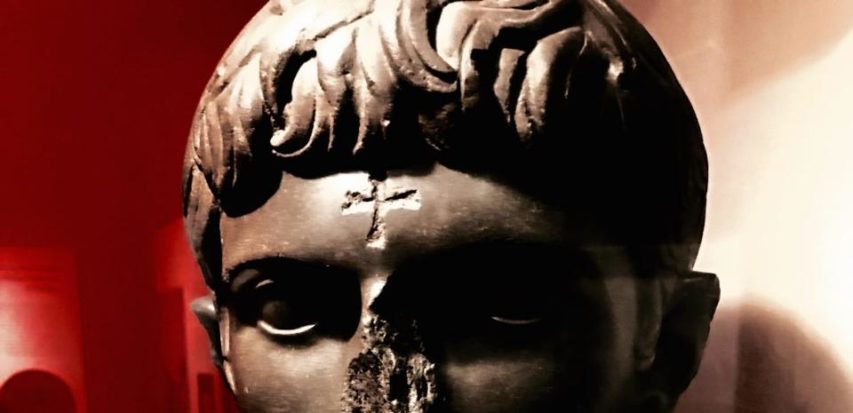The Latin in the title is a modern construction, but it describes a fairly common way that Romans would (to borrow from Orwell) push memories down the memory hole, including even former Emperors:
In the Soviet Union, Josef Stalin didn’t just defeat his political enemies – he purged their memories from existence. Photographs were altered and history texts changed to eliminate any trace of those who stood against him, a practice that inspired George Orwell to write 1984. But Stalin was far from the first leader to erase his enemies. The ancient Romans, too, tried to erase people from history – even Emperors.
A new show on now at the British Museum explores the use of memory sanctions against Roman emperors and their families in antiquity. It also evaluates the physical treatment of objects deemed “pagan” or heretical in the Christianized empire of Late Antiquity.
But what was the point of “damnatio memoriae“? And can you ever fully expunge someone from the historical record?
A Basanite bust of Germanicus that has a series of cuts around his ear, a shorn nose, his right ear chipped away and a cross etched on his forehead. The bust is on display now at the British Museum. (Photo by Sarah E. Bond)
The British Museum is currently displaying an exhibit on ancient memory sanctions called: “Defacing the Past: Damnation and desecration in imperial Rome.” It is a fascinating look into the ways in which we interact with objects as a proxy for the actual person. It is also a look into what ancient historian Harriet Flower has called the “art of forgetting.” Although such sanctions are often called “damnatio memoriae,” this is a modern Latin phrase and thus a construct that did not in fact exist in antiquity. Use of the term suggests a monolithic way in which Romans could legally damn the memory of a disgraced or unpopular Roman emperor, when in fact there was no one term for such sanctions or even a fully systematized procedure for it. What we have today is instead the material remnants of various senatorial, imperial, and ecclesiastical decrees — as well as a number of personal choices.
Sanctions against the commemoration of a person could take many forms in ancient Rome and can be traced back to the Republican period. The dictator Sulla had the statues of his rival, Marius, pulled down. He also banned the display of wax imagines carried in funeral processions. We are told by Plutarch (Caes. 5) that the nephew of Marius, Julius Caesar, displayed these wax casts of Marius’ face for the first time in the funeral for his aunt Julia in 69 BCE. Julia had been Marius’ wife and was Caesar’s aunt. The disgraced general and his consorts were earlier declared hostes (enemies) of the Roman state, but their memory was clearly not forgotten. The absence of the imagines under Sulla had in fact always been conspicuous, rather than a tactic that led to the erasure of their deeds or memory.




